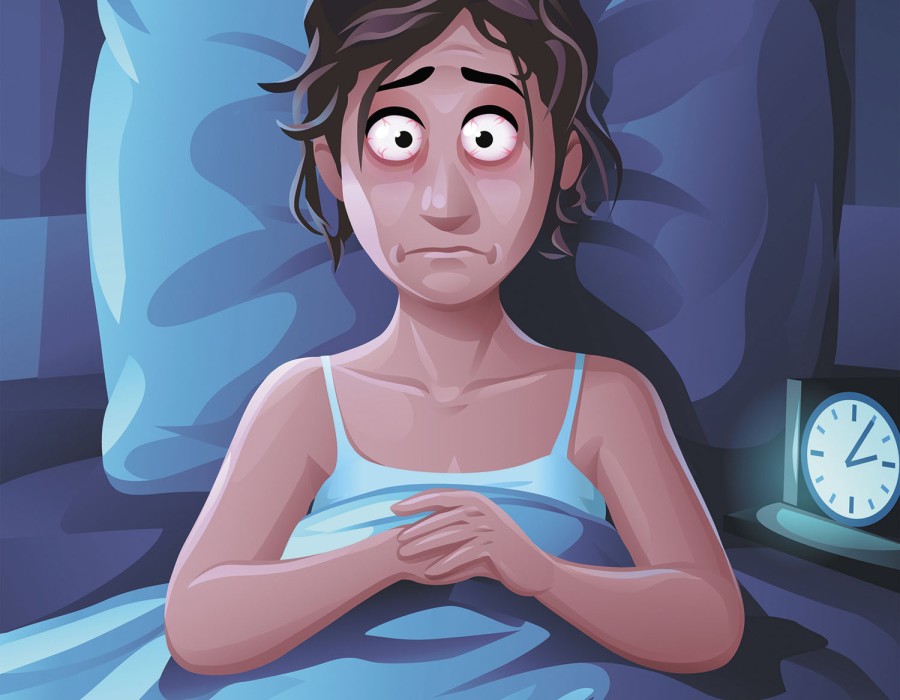Sleep is an essential component of human health, playing a critical role in physical, mental, and emotional well-being. Insomnia, characterized by difficulty falling asleep, staying asleep, or waking up too early, affects millions of people worldwide. Understanding the science of sleep and the effects of insomnia can illuminate its significant implications for overall health.
The Importance of Sleep
Sleep serves several vital functions. It facilitates physical recovery, cognitive processing, and emotional regulation. During sleep, the body repairs tissues, synthesizes proteins, and releases growth hormones. Sleep also consolidates memories and enhances learning, while emotional well-being is supported by the restorative phases of sleep, particularly REM (rapid eye movement) sleep.
In adults, the recommended amount of sleep is generally 7-9 hours per night. When this requirement is not met due to insomnia, the consequences can be profound.
Health Consequences of Insomnia
- Cognitive Impairment: One of the most immediate treat of insomnia is its impact on cognitive function. Sleep deprivation can lead to difficulties with attention, concentration, and decision-making. This cognitive decline can affect work performance and everyday activities, increasing the risk of accidents and errors.
- Mental Health Issues: Chronic insomnia is closely linked to mental health disorders such as anxiety and depression. The relationship is bidirectional; while insomnia can exacerbate these conditions, anxiety and depression can also contribute to sleep disturbances. This creates a vicious cycle where poor sleep worsens mental health, and worsening mental health further impairs sleep.
- Physical Health Risks: Insomnia has been associated with several chronic health conditions. Studies indicate that individuals with insomnia are at a higher risk for heart disease, diabetes, obesity, and weakened immune function. The stress hormones that rise during periods of insomnia can lead to inflammation and other physiological changes that contribute to these health issues.
- Hormonal Imbalance: Sleep regulates hormone production, including cortisol (the stress hormone), insulin (which controls blood sugar levels), and hormones that regulate appetite. Insomnia can disrupt these hormones, leading to increased stress levels, poor glucose regulation, and changes in appetite, which may contribute to weight gain.
- Reduced Quality of Life: The cumulative effects of insomnia can lead to a decreased quality of life. Individuals may experience chronic fatigue, reduced energy, and diminished interest in activities they once enjoyed. This can lead to social withdrawal, increased irritability, and a general sense of dissatisfaction.
Coping with Insomnia
Addressing insomnia involves a multifaceted approach. Here are several strategies that can help improve sleep quality:
- Sleep Hygiene: Establishing good sleep hygiene is essential. This includes creating a comfortable sleep environment, maintaining a consistent sleep schedule, and avoiding stimulants such as caffeine and nicotine close to bedtime. Engaging in calming pre-sleep rituals, such as reading or meditating, can also signal to the body that it is time to wind down.
- Cognitive Behavioral Therapy for Insomnia (CBT-I): CBT-I is a structured program that helps individuals identify and change thoughts and behaviors that treatment to insomnia. It has proven effective for many and addresses both the cognitive and behavioral aspects of sleep.
- Mindfulness and Relaxation Techniques: Practices such as mindfulness meditation, deep breathing exercises, and progressive muscle relaxation can reduce anxiety and promote a sense of calm, making it easier to fall asleep.
- Physical Activity: Regular physical activity has been shown to improve sleep quality. However, it’s essential to time workouts appropriately, as exercising too close to bedtime may have the opposite effect.
- Medical Intervention: In some cases, medication may be necessary to address severe insomnia. It is crucial to consult a healthcare provider to discuss potential options and the risks and benefits of sleep medications.
Conclusion
The science of sleep underscores its critical role in maintaining health and well-being. Insomnia, while common, can have serious consequences for cognitive function, mental health, and physical health. Understanding the implications of sleep deprivation and implementing effective strategies can help individuals reclaim restful nights and improve their overall quality of life. Prioritizing sleep is not just about getting enough hours; it’s about recognizing its fundamental importance to our health and happiness.





Comments